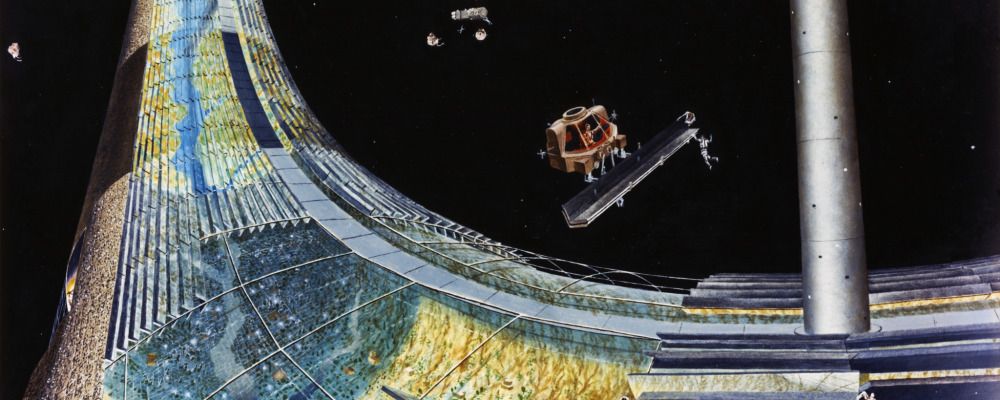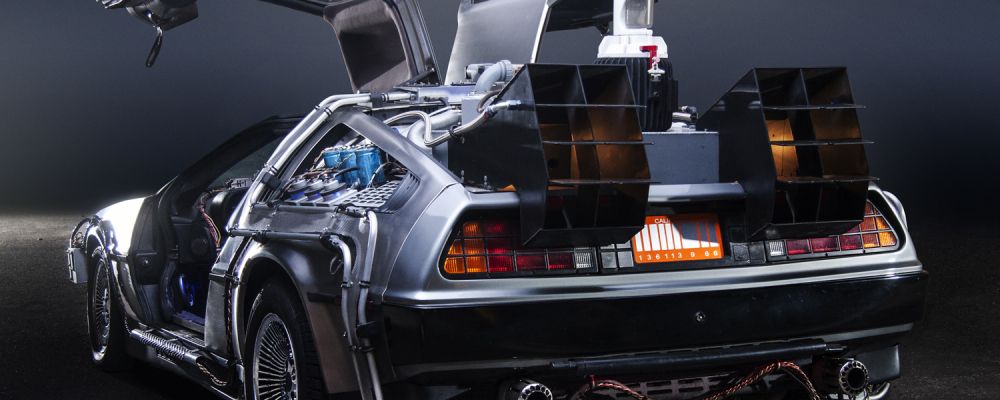At the most basic level The FIRST Robotics Competition, founded by inventor Dean Kamen, looks to the future by developing the next generation of the world’s engineers. Many of the students at FIRST go on to work at very influential titans of technology, or at future oriented organizations such as NASA. This documentary on FIRST Robotics is our eighth main piece in our Galactic Public Archives series in which we explore compelling visions of our future from influential individuals. So far, we’ve covered an interesting collection of viewpoints and topics regarding our possible future, ranging from the future of longevity, to the future of search and even the future of democracy. FIRST seemed like a natural opportunity to explore another ‘puzzle-piece’ of what the future might look like. And of course, the competition features Robots, which are an integral piece of any self-respecting utopian or dystopian future. What we did not realize as we started our exploration of the program was that FIRST is not attempting to be a humble building block towards the future. Although only time will tell to what degree it succeeds, it aspires to be a catalyst for much more far-reaching change.
In a society that praises the utmost competitive spirit in all the wrong ways, Inventor Dean Kamen noticed less and less youth using this spirit towards opportunities in math and science, instead aspiring to become celebrities, or sports superstars. In turn, he provided an answer to make kids excited about changing the world through technology. Kamen’s endeavor, FIRST Robotics offers teens a chance, in competition form, to use their skills and teamwork to problem solve a piece of machinery to life.
FIRST was modeled off the allure of professional sports leagues but without – hopefully — the dog eat dog spirit. David Lavery, FIRST Robotics Mentor and NASA Engineer, grew up during the Cold War when competition through technology meant joining in on the race to the moon. An interesting aspect of FIRST’s philosophy, is that as much as it embraces competition, students are also forced to realize that your greatest competitor could – in the future — work as one of your greatest collaborators. This generation may be bombarded with news about Kardashians as opposed to scientists, astronauts and cosmonauts — but what FIRST aims to cultivate, is a hunger to make a difference – made possible now more than ever due to widespread access to information.
Directly and tangentially, the experiment of FIRST both tackles and raises an entire swarth of deeper questions about our future. What values will our culture celebrate in the future? What will the repercussions be of the values that we celebrate today? How much time do we have to solve some of the great challenges looming on the horizon? Will there be enough individuals with the skills required to tackle those problems? To what degree will the ‘fixes’ be technological vs. cultural? How will the longstanding ideological struggle of competition vs. cooperation evolve as the next generations take over? What is the future of education? What is the proper role of a teacher? A mentor? Where does cultural change come from? Where should it come from? It’s an impressive list of questions to be raised by a competition involving robots shooting frisbees. We hope you find it as compelling as we did.

 Quoted: “Looking at the misinformation, speculation, and confusion about bitcoin and blockchain technology: it’s the same conversation we had
Quoted: “Looking at the misinformation, speculation, and confusion about bitcoin and blockchain technology: it’s the same conversation we had 
 Quoted: “We’re not there yet, but in less than 10 years, I believe that the technology behind bitcoin will transform the accounting profession entirely. What is this technology? The blockchain. Let me set the scene by going over a few bitcoin related concepts before explaining why I think that the accounting profession will undergo a major disruption in the coming years.”
Quoted: “We’re not there yet, but in less than 10 years, I believe that the technology behind bitcoin will transform the accounting profession entirely. What is this technology? The blockchain. Let me set the scene by going over a few bitcoin related concepts before explaining why I think that the accounting profession will undergo a major disruption in the coming years.”

 By
By 









